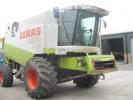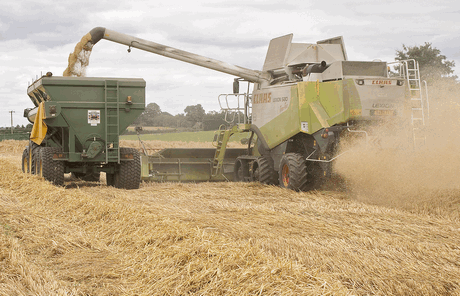Contractors count cost of wet harvest

Agricultural contractors around the UK are counting the cost of one of the worst harvests on record, with combining, baling, rape-drilling and cultivations operations all proving to be a slow, damp, frustrating slog.
If anything, harvest 2008 has been even tougher for contractors than farmers. With big acreages to cover and high machinery and staff costs, not to mention farmer customers anxious to see the contractor’s machine in their yard, it’s been a year to forget for most operators.
Tim Russon, from Lincolnshire contractors Peter Russon and Sons, has four combining customers for his Claas Lexion. With 240ha (600 acres) in total to cut and a late harvest looming, he took the step of asking his customers to let him start while grain moistures were still at about 19%.
By cutting as much as each customer could dry at any one time, he worked off each customer’s crops in rotation and finished just over a fortnight ago. Some 800t of the wettest corn was sold direct to livestock farmers and crimped on their farms at 26% moisture.

Jim Farquharson, who runs Dorset-based Pro-Ag contractors with Mike Simpson, says this year has been a nightmare, particularly for his five balers. “Some of the straw swaths had been on the ground for four or five weeks,” he says. “We used a single-rotor rake to turn them over but sometimes that just changed them from being very wet to being slightly less wet.”
Rape-drilling has been very frustrating too, he says, with up to 20% of the crop having to be redrilled because of slug damage. Min-till has been equally hard going, though Pro-Ag’s Gregoire Besson Discordon cultivator has kept going despite the wet conditions.
Troy Stuart from Devon-based contractor AE Stuart also reckons that baling has been worst-hit by this year’s weather. The firm’s three balers have only been able to bale 40,000 bales this year instead of the normal 60,000.
“We’ve had to turn some of the swaths three or four times this year to get it dry and shattering has been a problem,” he says. “We’ve also had a lot of farmers choosing to put the combine chopper back into action because they didn’t want to risk leaving it in swaths to get wet.”
Other operations have been frustrating too. The 800ha (2000 acres) of combining was only done by working round the clock and rape has gone in up to three weeks late. Min-till cultivations are progressing, he says, but as heavy soils turned hard in the current dry period, extra passes have been needed to get a decent seedbed.
But all three contractors agree that relations between farmer and contractor – which under other circumstances could have been very strained – stayed good because of a common agreement that everyone was in equally dire straits.

